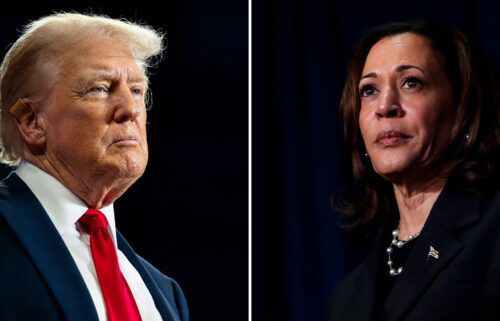Alibaba’s homecoming is about pleasing China and buying trade war insurance

Alibaba’s plan to raise billions of dollars by selling shares on the Hong Kong stock market will be one of the largest public offerings in the world this year. It’s also a savvy political move.
While the Chinese company wants to use the money — up to $13 billion — to expand its business, public filings show Alibaba isn’t exactly in desperate need of cash. The company is profitable, and it already has roughly $33 billion in cash reserves.
What a listing in Hong Kong really affords Alibaba is the ability to impress Beijing in a big way. It’s a symbolic homecoming for a company that is traded on the New York Stock Exchange but is one of China’s technological crown jewels. And it’s a shot in the arm for the Asian financial hub that is in the throes of a political crisis.
“Alibaba hardly lacks access to capital,” said Brock Silvers, managing director for Adamas Asset Management in Hong Kong. “But the Hong Kong listing isn’t being driven by normal business strategy. Alibaba is being a good corporate citizen — and a shrewd operator — in following Beijing’s dictates.”
Coming home
Hong Kong was Alibaba’s initial choice when it first wanted to tap the public market back in 2014. But things didn’t work out because of a disagreement over Alibaba’s shareholding structure, and the company turned to New York instead. Its $25 billion public debut that year on Wall Street is still the largest ever.
In the years since that IPO, Beijing has been making a stronger bid for tech superpower status by investing in research and expanding its investment in the technologies of the future. Part of that effort also involves calling for Chinese technology companies that are listed overseas to come home, where the government can have more oversight over some of its most prized businesses.
Alibaba founder Jack Ma has made it clear that his heart is still in China. He’s a member of the country’s Communist Party, and spoke earlier this year about how entrepreneurs “need to have the love for his family and the nation.” When Alibaba held its NYSE listing ceremony in 2014, Ma said that “as long as conditions permit, we will return” to China.
Hong Kong also needs a vote of confidence. Months of pro-democracy protests have fueled tensions between the semi-autonomous city and Beijing, putting its future as Asia’s premiere financial hub at stake. Media reports suggested the Alibaba listing was actually supposed to happen in August, but was delayed because of the unrest.
“The real inside question is to what extent Beijing has pushed Alibaba to the listing and no further delays in an effort to bolster Hong Kong, or general confidence in Hong Kong,” said Malcolm McNeil, a litigator and partner at Arent Fox, a Washington-based law firm.
For its part, Alibaba praised Hong Kong on Friday, when it said it would begin selling shares to retail investors.
“During this time of ongoing change, we continue to believe that the future of Hong Kong remains bright,” Alibaba chairman and CEO Daniel Zhang wrote in a letter to investors. “We hope we can contribute, in our small way, and participate in the future of Hong Kong.”
China moved quickly to praise Alibaba’s return. The Securities Times, a newspaper run by the Communist Party’s People’s Daily, on Friday called the listing a “win-win move.”
“This truly indicates the love among family members and that blood is thicker than water,” the newspaper wrote.
US-China tensions
Alibaba’s secondary listing isn’t just a victory for China. It also allows the company to manage any potential political risks that emerge from Washington’s trade war with Beijing.
“When Beijing first called for the repatriation of China’s overseas giants, it seemed an effort to exert greater state control over companies which were increasingly independent of Beijing,” said Silvers of Adamas Asset Management. “Since then, however, choppy economic relations with the US have heightened sensitivities.”
Some of China’s biggest companies are already in the crosshairs of the US government. Shenzhen-based Huawei, for example, was put on a trade blacklist earlier this year. Lawmakers in the country have also called for investigations into Beijing-based ByteDance, the owner of social media phenomenon TikTok.
Alibaba hasn’t attracted anywhere near the same level of ire from the United States. But some reports have suggested that the United States could try to make life harder for Chinese companies that are publicly traded stateside. In September, for example, several media outlets reported that the Trump administration considered forcing those firms to comply with heightened regulatory oversight, or otherwise face de-listing.
White House trade adviser Peter Navarro later dismissed reports about such restrictions as “highly inaccurate“. And US President Donald Trump doesn’t have the power to de-list Chinese companies by presidential order, said Erik Gordon, a professor from the Ross School of Business at University of Michigan — nor did Gordon think it likely that Congress would pass legislation to do so.
But some experts suggested that US regulators could increase the amount of oversight they perform on US-listed firms, thereby putting pressure on Chinese companies that might then have to submit audit documentation or business records to American authorities.
Listing in Hong Kong, meanwhile, gives Alibaba access to another international financial market if things go sour in the United States, said Hong Hao, managing director and head of research for Bank of Communications International in Hong Kong.
“The chance might be very small for the worst scenario. But honestly, no one can predict where it [the trade war] is heading,” Hong said. “Uncertainty is uncontrollable, and for a business, it’s important to manage the risk,” he said.
“If the worst happens,” he added, “at least it [Alibaba] has a backup plan.”


